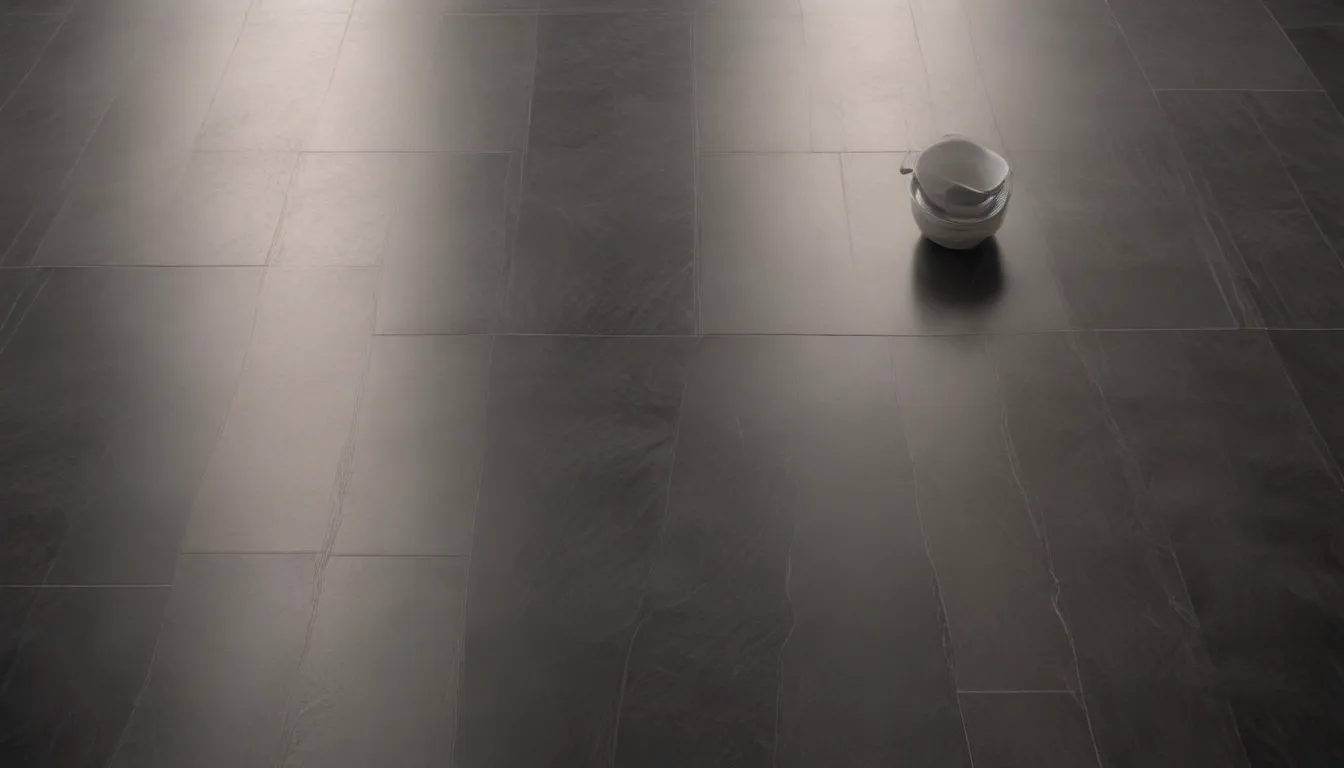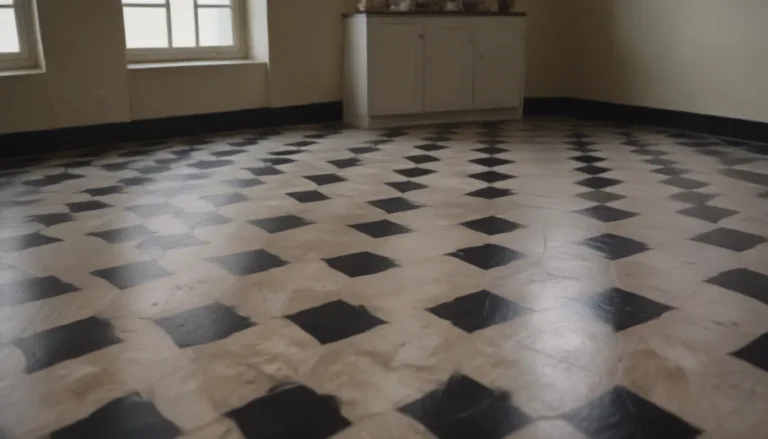The Ultimate Guide to Porcelain Floor Tiles: Everything You Need to Know

Welcome to our comprehensive guide to porcelain floor tiles! If you’re considering upgrading your flooring, porcelain tiles are an excellent option to consider. In this article, we will dive deep into the world of porcelain tiles, discussing the pros and cons, costs, maintenance, design options, installation, and much more. By the end of this guide, you will be equipped with all the information you need to make an informed decision about whether porcelain tiles are the right choice for your home.
What Are Porcelain Floor Tiles?
Porcelain tiles are a type of ceramic tile that stands out for its exceptional strength, durability, and water-resistance. These tiles are made from clays with finer particles that are fired at high temperatures, resulting in a harder, less porous surface compared to standard ceramic tiles. This unique manufacturing process gives porcelain tiles a wide range of benefits, including:
- Durability: Porcelain tiles are incredibly durable and can withstand heavy stresses, making them suitable for high-traffic areas.
- Design Versatility: Porcelain tiles can mimic a variety of other materials, such as marble, granite, wood, and more, with remarkable accuracy.
- Water and Stain Resistance: The dense nature of porcelain makes it resistant to liquid penetration, making it easy to maintain and clean.
- Low Maintenance: Porcelain tiles are easy to clean and maintain, requiring only regular sweeping and occasional spot cleaning.
- Cost: While porcelain tiles were once more expensive than standard ceramic tiles, they are now comparable in price, offering excellent value for their longevity.
Pros and Cons of Porcelain Floor Tiles
Like any flooring option, porcelain tiles come with a set of pros and cons that are important to consider before making a decision:
Pros:
- Durability: Porcelain tiles are incredibly durable and can last for decades with proper maintenance.
- Design Options: Porcelain tiles can mimic a wide range of materials, giving you endless design possibilities.
- Water and Stain Resistance: The non-porous surface of porcelain makes it resistant to water and stains, making it ideal for high-moisture areas.
- Low Maintenance: Easy to clean and maintain, requiring minimal effort to keep them looking like new.
Cons:
- Heavy and Brittle: Porcelain tiles can be heavy and brittle, making them more susceptible to cracking if not handled properly.
- Cost: While the initial cost of porcelain tiles has come down, they can still be more expensive than other flooring options.
- Cold and Hard: Porcelain tiles can feel cold and hard underfoot, which may not be as comfortable as other flooring materials.
Porcelain Tile Cost
The cost of porcelain floor tiles can vary depending on the quality and design of the tiles. On average, you can expect to pay between $5 to $25 or more per square foot for the tiles alone. Installation costs can add an additional $10 to $25 per square foot, depending on the complexity of the project. While porcelain tiles may have a higher upfront cost, their longevity and durability make them a worthwhile investment in the long run.
Maintenance and Repair
Maintaining porcelain floor tiles is relatively easy, thanks to their stain and water resistance. Regular sweeping and spot cleaning with a damp rag are usually all that is needed to keep them looking like new. However, it is essential to seal the grout lines between tiles to prevent damage from regular use. In the event of damage to a tile, individual pieces are easy to replace, provided you have saved some extras from the installation process.
Design Options
One of the most significant advantages of porcelain tiles is their ability to mimic a wide range of traditional flooring materials. Whether you prefer the look of marble, granite, wood, or even steel, bamboo, or cork, porcelain tiles can replicate these materials with stunning accuracy. This design versatility allows you to achieve the look of natural materials with the durability and performance of ceramic tiles.
Porcelain Tile Installation
Installing porcelain tiles is similar to installing ceramic tiles, but it can be a labor-intensive process. The hardness of porcelain makes it challenging to achieve precise cuts without special saws, so hiring a professional installer may be worth the investment. However, with patience and time, DIYers can save on installation costs by tackling the project themselves. It’s essential to ensure that your floor can handle the additional weight of porcelain tiles, especially in upper-story environments.
Top Brands of Porcelain Tile
Many top manufacturers of ceramic tiles also offer porcelain tiles, each with its own range of products and designs. When choosing a brand, opt for established companies that are likely to stock matching tiles in the future. Some of the top brands known for their quality porcelain tiles include:
- Brand 1
- Brand 2
- Brand 3
Comfort and Convenience
While porcelain tiles offer exceptional durability, they can feel cold and hard underfoot. To enhance comfort, consider adding area rugs or installing radiant floor heating systems, which can provide a subtle warmth to the floor. With these additions, you can enjoy the benefits of porcelain tiles without sacrificing comfort.
Porcelain Tile vs. Standard Ceramic Tile
Porcelain tiles offer many of the same benefits as standard ceramic tiles, with the added advantage of increased durability and design flexibility. While they may be slightly more brittle and harder to saw, porcelain tiles can replicate the look of natural materials with unmatched accuracy. Glazed porcelain tiles may be slippery, so opting for textured or matte surfaces can minimize this issue.
Is Porcelain Tile Right for You?
If you value durability, design versatility, and low maintenance in your flooring, porcelain tiles may be the perfect choice for you. While the initial cost may be higher than other options, the longevity and performance of porcelain tiles make them a worthwhile investment. Whether you choose to tackle the installation yourself or hire a professional, you can enjoy a durable and elegant floor that will last for years to come.
In conclusion, porcelain floor tiles offer a range of benefits that make them an excellent choice for any home. With their durability, design versatility, and low maintenance requirements, porcelain tiles can elevate the look and feel of any space. Whether you’re renovating your kitchen, bathroom, or living room, porcelain tiles are a versatile and long-lasting flooring option that will stand the test of time.





